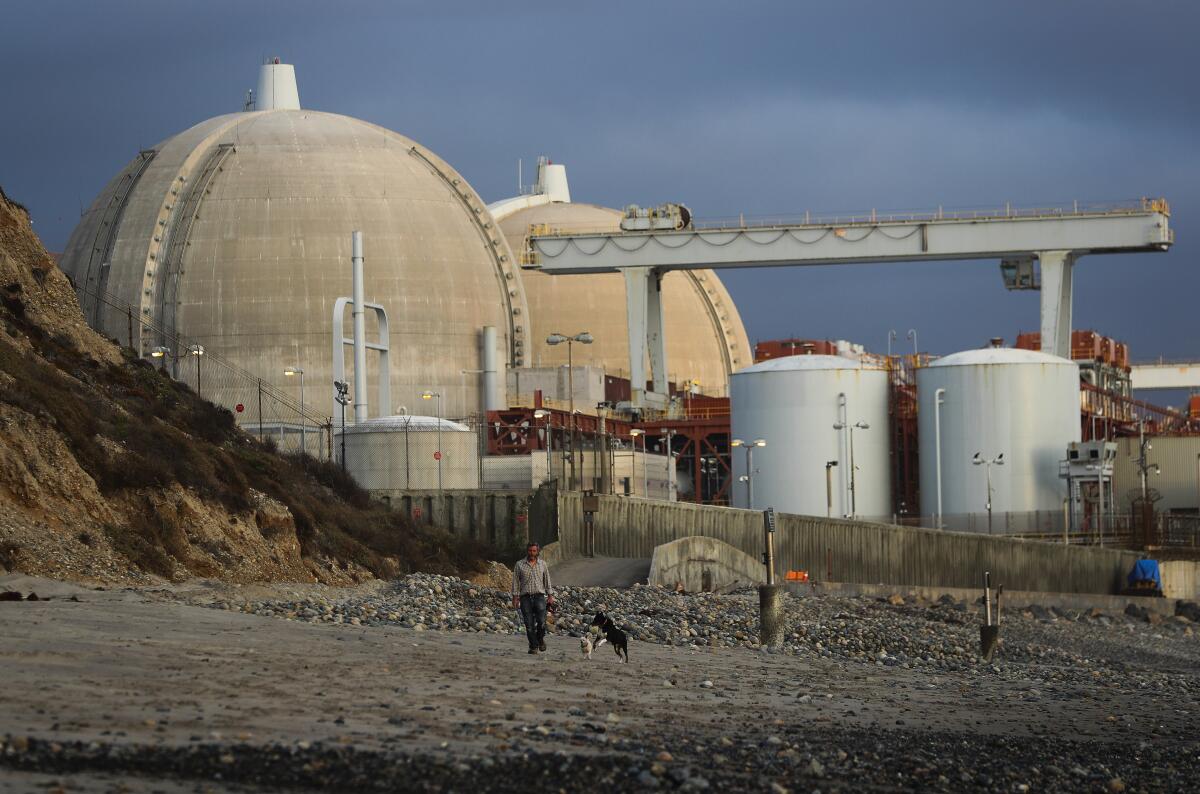Stephen Bechtel Jr., who led family engineering firm on its global drive, dies
- Share via
Stephen Bechtel Jr., the third-generation heir of the Bechtel Corp. construction empire who led its global drive for 30 years and provided President Reagan with key Cabinet members, has died at his home in San Francisco.
The company said Bechtel died Monday at 95. No cause of death was given.
The Stanford-educated engineer became a billionaire while leading the San Francisco-based firm’s expansion through “mega-projects” in Saudi Arabia, the U.S. and Canada.
At 35, he took over as president from his father in 1960 and oversaw contracts for the San Onofre Nuclear Generating Station in north San Diego County, the Jubail Industrial City in Saudi Arabia and the James Bay hydroelectric project in Canada. In less than two decades, he doubled the company’s size, according to its website.
“As a manager, Steve Bechtel Jr. differed greatly from his father,” the company said in an online profile. “Steve Jr. was in every sense the first professional manager to run the company. Steve Jr. had a grip on the numbers and details of the business in a way that his father never had.”
His net worth was $3.5 billion, according to the Bloomberg Billionaires Index. He and his son Riley were each believed to own 20% of the closely held company, Forbes reported. Riley Bechtel succeeded his father as chief executive officer in 1990.

The grandson of company founder Warren Bechtel, Stephen Bechtel Jr. served on presidential committees and councils while running the construction firm that built Hoover Dam during the Great Depression and more than 500 cargo ships and U.S. Navy tankers during World War II. He advised Lyndon Johnson on urban housing, Richard Nixon on pollution control and productivity, and Nixon and Gerald Ford on industry-labor relations.
Bechtel Corp.’s ties to government drew accusations of cronyism. Its partner in the wartime shipyards was steel executive John McCone, who later became director of the CIA under Presidents Kennedy and Johnson.
Two decades later, Bechtel alumni joined Reagan’s Cabinet when George Shultz, a Bechtel president, became secretary of State, and Caspar Weinberger Jr., Bechtel’s general counsel, was named Defense secretary. Public concern about the company’s influence was intensified by the culture of secrecy nurtured by its chairman.
“He had no patience with troublesome stockholders or filings with the Securities and Exchange Commission, and even less for the prying scrutiny of the public and the press,” according to a 1988 Fortune magazine story.
The company’s most well-known project during Bechtel’s tenure was the construction of an industrial city in the Saudi fishing village of Jubail. The plan, which began in 1975 and cost more than $30 billion, created a center for more than 160 enterprises and housing for almost 90,000 full-time residents, according to the website of Jubail University College.
In 1983, the development was cited in the Guinness Book of Records as the largest engineering and construction program ever attempted. With extensions planned to the existing city, Jubail was still the world’s largest civil-engineering project as of 2017, according to Bechtel Corp.
Before stepping down as chairman in 1990, Bechtel had presided over the construction of San Francisco’s Bay Area Rapid Transit System; the early stages of the Channel Tunnel project that linked the U.K. with France through a 31-mile undersea railway at a cost of $14.7 billion; and the James Bay Hydro Complex, a $13.8-billion undertaking in northwestern Quebec that harnessed the energy of four rivers and helped fuel the province’s economy.
During his tenure, he also served in an advisory role at Caltech, Purdue, MIT and Stanford.
Stephen Davison Bechtel Jr. was born May 10, 1925, in Oakland to Stephen D. Bechtel Sr. and the former Laura Peart. He had a sister, Barbara.
In 1943, Bechtel enrolled at the University of Colorado, as part of the Marine Corps Officer Cadet Unit. He transferred to Purdue University in West Lafayette, Ind., where he earned a bachelor of science degree in engineering. He received a master’s in business administration from Stanford University in 1948.
Bechtel then joined the family business and worked on a pipeline project in Texas and on other construction jobs around the U.S. and Canada. He became chairman in 1973.
In 1991, President George H.W. Bush awarded him the National Medal of Technology, the highest U.S. honor for technical achievement. In 2009, the Boy Scouts of America announced plans for a national scouting center based in West Virginia after the S.D. Bechtel Jr. Foundation donated $50 million, the largest gift in the history of the Boy Scouts.
“Scouting made a tremendous impact on my life,” Bechtel said. “It’s the source of some of my fondest memories.”
With his wife, the former Elizabeth Mead Hogan, whom he married in 1946, Bechtel had five children.
Start your day right
Sign up for Essential California for the L.A. Times biggest news, features and recommendations in your inbox six days a week.
You may occasionally receive promotional content from the Los Angeles Times.



